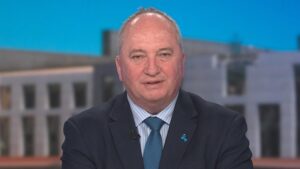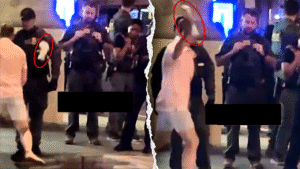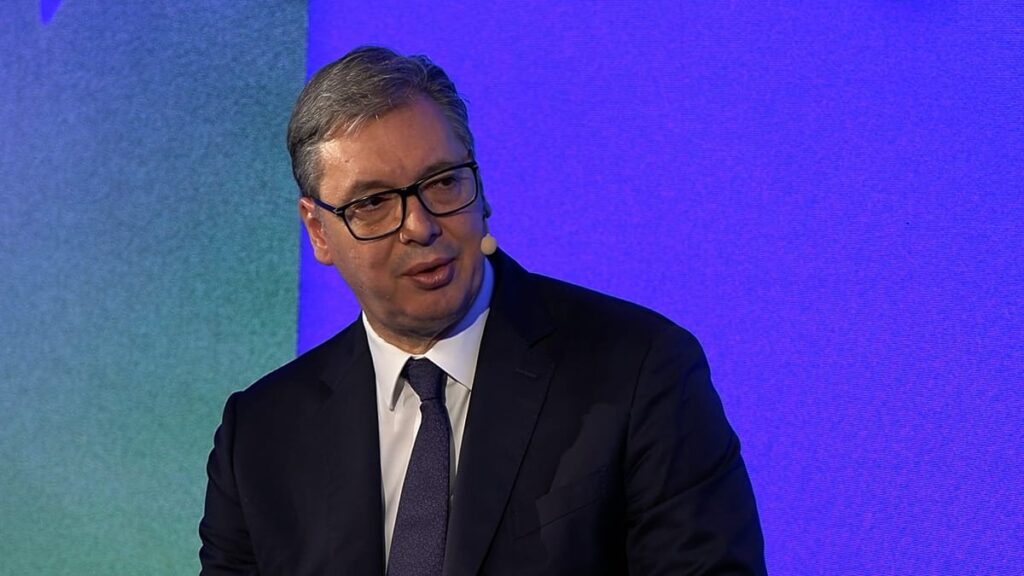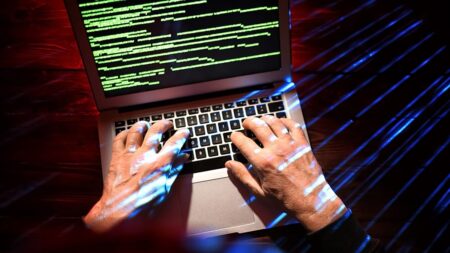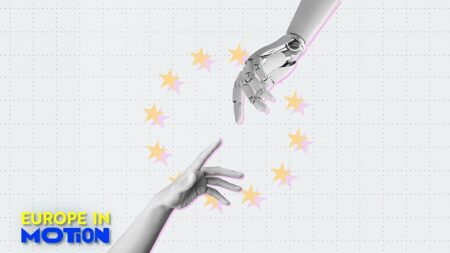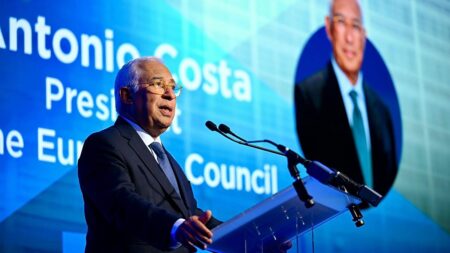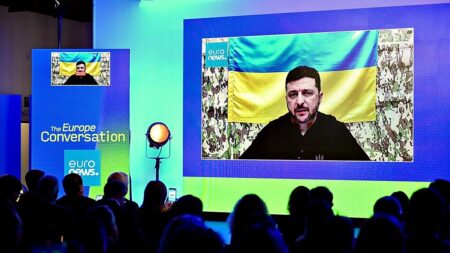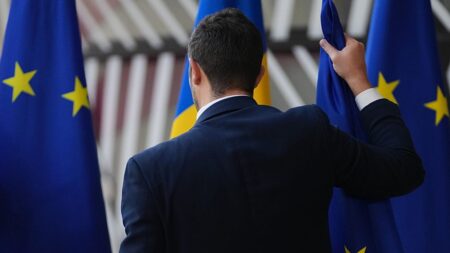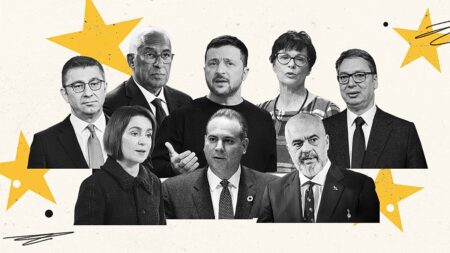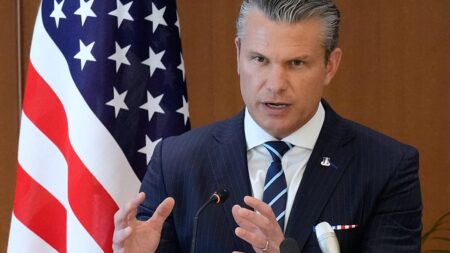Serbian president Aleksandar Vučić has confirmed that his country is ready to sell ammunition to the EU, even if it ultimately ends up with Ukrainian forces in their fight against Russia.
“We need to sell it to someone, and we’ll sell it to whomever we can in order to earn some money, but we’ll try to take care and not see that ammunition end up in a war zone. But it happens from time to time,” Vučić said on Euronews’ flagship interview show The Europe Conversation.
“At the end [of the day], we’ll have to pay our workers,” he added.
“Tell me, is there something that is not rational?” Vučić asked.
According to Vučić, Serbia produces up to 160,000 shells of different kinds and calibre, “equal or a bit more than France”, work that is done by 30,000 workers who are “dependent on our ability to sell this ammunition to someone.”
Vučić seems to be showcasing a change of heart regarding Serbia’s arms sales policy.
Last June, he halted all ammunition exports after pressure from Moscow, which resented the fact that some shells were used in their war against Ukraine.
Vučić repeated his often-voiced support for the territorial integrity of Ukraine, but stopped short of backing EU sanctions against Russia.
“We are not an EU member state. I cannot do anything on this. I cannot influence it,” he said.
Yet, pointing to past international sanctions against Serbia, he expressed doubts about whether sanctions “bring the best results”, arguing that sanctions would only harm ordinary people.
EU criticism of protests
On EU enlargement, the Serbian president defended his leadership against criticisms presented in a new EU Commission report on aspiring members of the bloc.
The Enlargement report, released on Tuesday, noted that “polarisation in Serbian society has deepened against the background of mass protests…reflecting disappointment of citizens over inter alia corruption”.
Brussels also condemned the country’s “excessive use of force against protestors” and “backsliding on freedom of expression and the erosion of academic freedom”.
This past weekend, Serbia again saw mass demonstrations marking the first anniversary of a train station disaster in the northern city of Novi Sad.
The collapse of the railway station, which killed 16 people, triggered a youth-led movement calling for political change.
Vučić shrugged off the reprimands from Brussels — as well as the protests in Serbia — by underlining Serbia’s economic credentials.
“I was facing protests since I became the prime minister in 2014,” said Vučić. “But even with that in mind, we have been progressing with good growth rates.”
“I also need to add that public debt dropped when I became prime minister because of how disciplined we were. The public debt-to-GDP is now 43%, half the EU average,” he continued.
Citing further signs of economic progress, Vučić also underlined Serbia’s improved credit ratings.
In 2024, the country received its first investment-grade rating when Standard & Poor’s upgraded it from BB+ to BBB- with a stable outlook. This made S&P the first agency to lift Serbia’s foreign-currency bonds out of junk status.
Such a decision was partly linked to the Balkan nation’s “Expo 2027” plan, an exposition intended to attract foreign investment. Tied to the event are a myriad of infrastructure and development projects.
“We have already received confirmation that 127 countries might participate in that expo,” said Vučić.
Read the full article here


